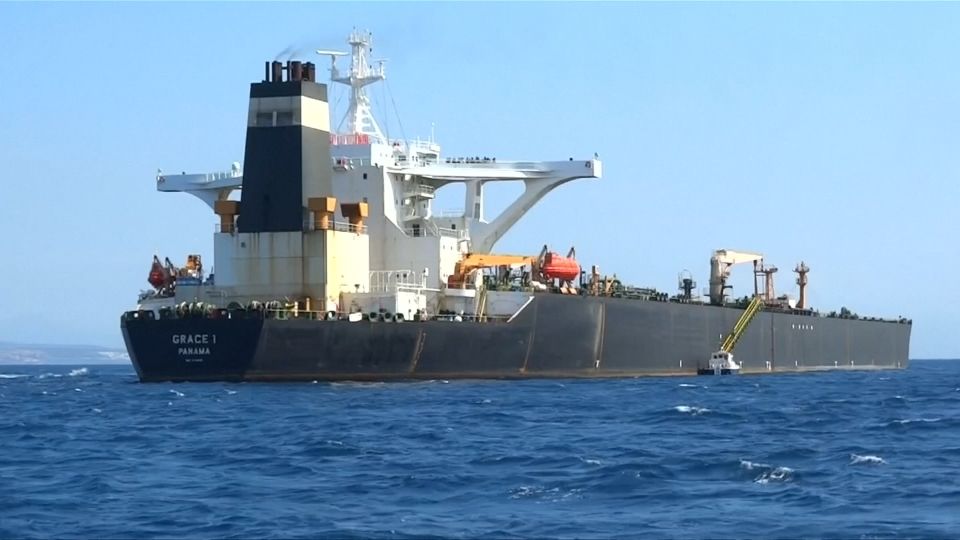LONDON, July 5 (Reuters) – The crew on a giant Iranian oil tanker detained in Gibraltar are being interviewed as witnesses, not criminal suspects, in an effort to establish the nature of the cargo and its ultimate destination, a spokesman for the British territory said.
British Royal Marines abseiled onto the Grace 1 tanker on Thursday and seized it for trying to take oil to Syria in violation of European Union sanctions. They landed a helicopter on the moving vessel in pitch darkness.
The move could escalate a confrontation between Iran and the West that saw the United States call off air strikes minutes before impact last month. Tehran summoned the British ambassador to voice “its very strong objection to the illegal and unacceptable seizure” of its ship.
The Gibraltar spokesman said the 28-member crew, who have remained on board the supertanker, were mainly Indians with some Pakistanis and Ukrainians. Police and customs officials remained on board the vessel to carry out their investigation, but the Royal Marines were no longer present.
Gibraltar said on Thursday it had reasonable grounds to believe that the Grace 1 was carrying crude oil to the Baniyas refinery in Syria.
The European Union has had sanctions in place for years that prohibit sales of oil to Syria. Europe does not have broad sanctions in place against Iran, but the United States does, driving Tehran off of mainstream oil markets in recent months and forcing it to seek unconventional outlets to sell its oil.
Shipping data reviewed by Reuters suggests the tanker was carrying Iranian oil loaded off the coast of Iran, although its documents say the oil is from neighbouring Iraq.
Iran’s complaint about the seizure dispelled any doubt over the ownership of the vessel, which is registered as managed by a company in Singapore.
It was impounded in the British territory on the southern tip of Spain after sailing around Africa, the long route from the Middle East to the mouth of the Mediterranean.
If officials in Gibraltar have not fully established the nature of the cargo or the final destination, they could in the coming days ask a court for permission to hold the vessel for longer.
(Reporting by Kate Holton Editing by Mark Heinrich and Peter Graff)


